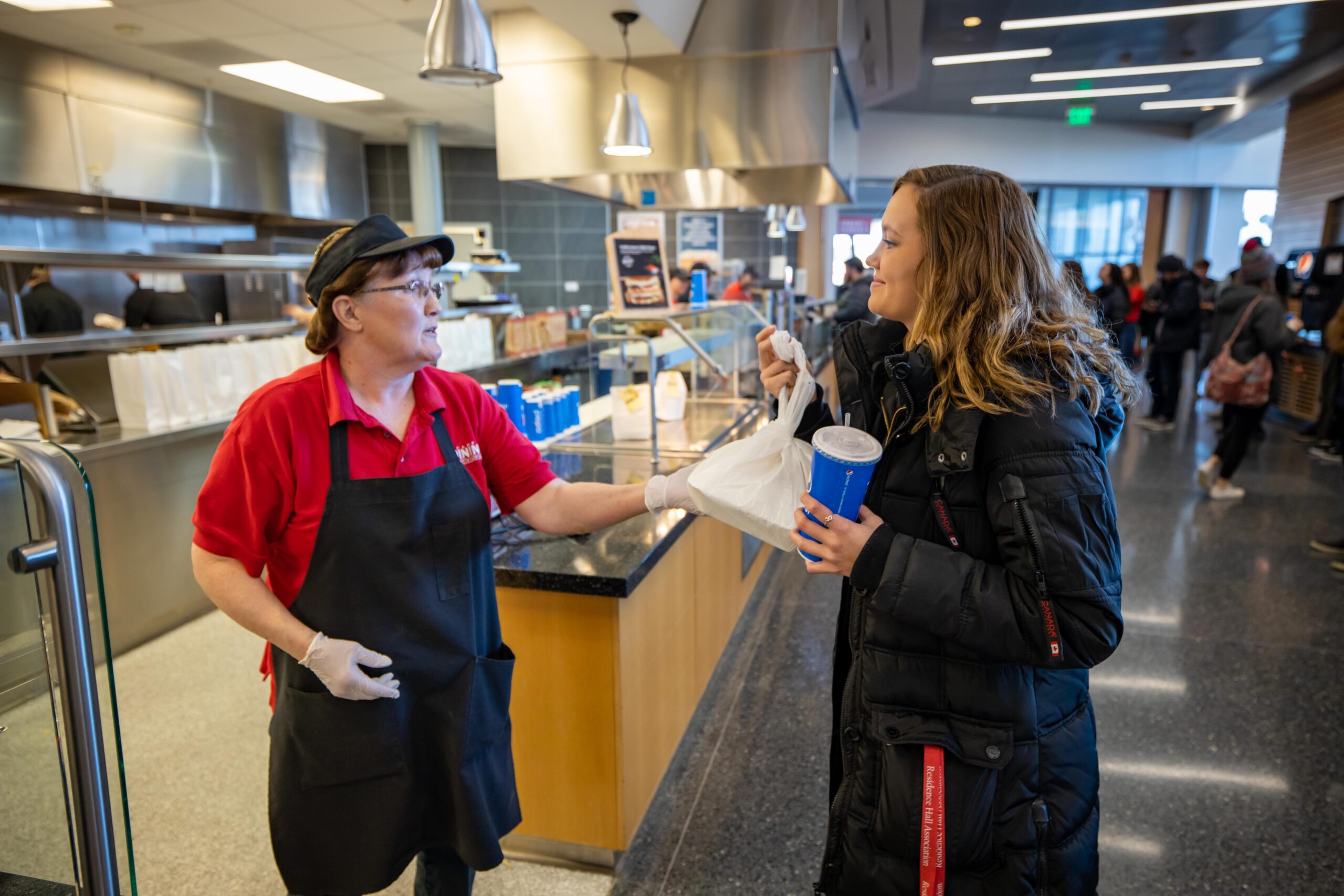
Students, campus dining discuss religious, dietary restrictions
Campus dining provides a number of accommodations for students with dietary needs, but for some students more is still needed.
Rose McLaughlin, a senior triple major in international studies, anthropology and history, has been pushing Aramark to expand its food options to include kosher and halal dining options for Jewish and Muslim students, respectively.
McLaughlin said she started focusing on this cause during her junior year, and has worked with the Student Government Association since late October and has found the experience frustrating.
“When I started the project, we had sent an email to Aramark asking them about what they had available,” McLaughlin said, “We didn’t get an email until three weeks later, and the email was really just one sentence saying that we provide options for students, which told me nothing.”
Certifying food as either kosher or halal is a process that varies depending on the religious sect one adheres to. However, there are suppliers who provide both kosher and halal options to other universities across the country.
“Aramark is claiming that it has halal food, but I don’t believe that it’s certified, and therefore it’s not really halal,” McLaughlin said.
Stacy Kauer, marketing coordinator for Aramark, said campus dining does its best to accommodate students of all dietary needs.
“Our policy and programs are built around our strong belief that our customers’ safety is best served by connecting each and every diner who has a food allergy with a manager on-site who can understand their unique needs,” Kauer said.
Aramark provides a number of safeguards for students with allergies, including point-of-service allergen signage, employee training and consumer education and awareness, Kauer said.
Morgan Prouse is a USD student with celiac disease and receives gluten-free food from Aramark. After meeting with Adam Chicoine, senior food service director at Aramark, and having her physician fax information to the university in September, she said she was able to get gluten-free food right away.
“(Chicoine) said I could have food in the MUC but that it would probably have cross contamination, so that wasn’t an option for me,” Prouse said. “He said there was also an option to have them make me specific food, which is what I ended up doing.”
Prouse said she finds the options provided to her extremely satisfactory.
“The food they give me is absolutely amazing,” Prouse said, “and a lot of the time my friends say, ‘I wish that I had the food that you have,’ because they just give me such great food.”
Unlike Prouse, McLaughlin has had more of a challenge finding other dining options, even working with SGA.
While McLaughlin has passed a resolution through proposing that Aramark provide kosher and halal dining options, the resolution is non-binding, which McLaughlin said is crucial.
“Right now, what we have is just that we’re bringing it to the attention of the university, but there’s no actual push to get anything done,” McLaughlin said, “I would really encourage everybody to pay attention to this and not to let this slide.”
McLaughlin said she believes there is enough of a push within SGA to pass a bill on this issue, which would require the university to take action on it, but doesn’t believe that certified kosher or halal food is likely to be available in the MUC before 2021.
“I would encourage everybody to follow up on this, and don’t let it fall into the ether,” McLaughlin said.
Any students who have dietary restrictions should meet with Adam Chicoine, senior food service director of Aramark, in order to have accommodations met.

